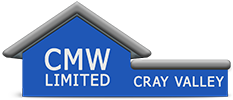
Introduction
Screws and fixings might seem like simple hardware, but choosing the right ones can make all the difference in the success of your DIY project or professional construction endeavour. With a wide array of options available in terms of size, material, and design, navigating the world of screws and fixings can be daunting. However, fear not! In this comprehensive buying guide, we'll explore everything you need to know to find the perfect fit for your needs.
Understand the Basics
Before diving into the specifics, it's essential to understand the basic components of screws and fixings. Screws typically consist of a threaded shaft (the part that goes into the material), a head (where you apply torque), and sometimes a point (for easier insertion). Fixings, on the other hand, encompass a broader category of hardware used to secure one object to another, which can include screws, bolts, nails, anchors, and more.
Know Your Materials
Screws and fixings come in various materials, each suited for different applications:
Steel: Strong and durable steel screws are suitable for general-purpose use.
Stainless Steel: Resistant to corrosion, stainless steel screws are ideal for outdoor or high-moisture environments.
Brass: Brass screws offer excellent corrosion resistance and are often used for decorative purposes.
Aluminum: Lightweight and corrosion-resistant, aluminum screws are commonly used in aerospace and automotive industries.
Titanium: Known for its strength and corrosion resistance, titanium screws are used in applications where lightweight and durability are crucial.
Consider the Thread Type
The thread type of a screw determines how it interacts with the material it's being driven into. Common thread types include:
Wood Threads: Designed for use in wood, these screws have deep, coarse threads for maximum grip.
Machine Threads: These screws have finer threads and are suitable for use in metal or plastic.
Sheet Metal Threads: Designed for use in thin metal sheets, these screws have sharp threads for easy penetration.
Size Matters
Choosing the right size of screw or fixing is paramount for a successful project. Factors to consider include:
Length: Ensure the screw is long enough to penetrate both materials being joined without protruding excessively.
Diameter: The diameter of the screw should match the size of the pilot hole or pre-drilled recess to provide a secure fit.
Head Type and Drive Style
Screw heads come in various shapes and drive styles, each with its advantages:
Phillips: Commonly used in household applications, Phillips screws have a cross-shaped indentation.
Flathead (Slotted): Flathead screws have a single horizontal indentation and are used in applications where the screw head should sit flush with the material surface.
Hex Socket (Allen): These screws have a hexagonal indentation and are driven using a hex key, providing increased torque and security.
Torx (Star): Torx screws have a six-pointed star-shaped indentation, offering more excellent resistance to cam-out and increased torque transfer.
Specialized Screws and Fixings
For specific applications, specialized screws and fixings are available:
Self-Drilling Screws: Designed for use in metal without the need for pre-drilling.
Concrete Anchors: Used for securing objects to concrete or masonry surfaces.
Threaded Inserts reinforce threaded holes in soft materials like wood or plastic.
Quality Matters
Investing in high-quality screws and fixings is essential for the longevity and durability of your project. Cheaper alternatives may save money upfront but can lead to corrosion, stripping, or breakage over time.
FAQs
What are the different types of screws and fixings available?
Screws and fixings come in various types, including wood screws, machine screws, concrete anchors, bolts, and more. Each type is designed for specific applications and materials.
How do I determine the right size of screw or fixing for my project?
To choose the correct size, consider the material thickness, the depth of penetration required, and the diameter of the hole. It's essential to match the size of the screw or fixing to the requirements of your project.
What materials are commonly used for screws and fixings?
Common materials include steel, stainless steel, brass, aluminium, and titanium. Each offers unique properties such as strength, corrosion resistance, and weight and is suitable for different applications and environments.
What factors should I consider when selecting the driving style of screws?
Drive style affects how the screw is installed and removed. Factors to consider include the torque required, ease of use, and resistance to stripping. Popular drive styles include Phillips, flathead (slotted), hex socket (Allen), and Torx (star).
Why is it essential to invest in high-quality screws and fixings?
High-quality hardware ensures the longevity and durability of your project. Cheaper alternatives may save money upfront but can lead to issues such as corrosion, stripping, or breakage over time, compromising the integrity of your work.
Conclusion
Whether you're embarking on a DIY project or undertaking a professional construction job, selecting the suitable screws and fixings is crucial for success. By understanding the basics, considering materials and thread types, choosing the correct size, head type, and drive style, and investing in quality hardware, you can ensure your project is secure and built to last. With this ultimate buying guide, you can find the perfect fit for any application. Happy building.
If you want to take a closer look at our range of screws and fixings, click here. If you want to contact or find out more about this blog posts author, Dave click here.
